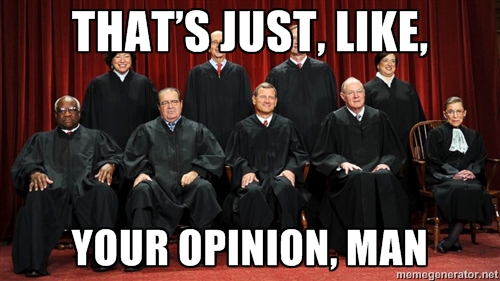I Should Have Known the Pope Wasn’t Going to Change Policy
The news today mentioned that Pope Francis I had okayed contraception for women in Zika-struck areas. Yay, liberal hippie pope! My complaint since the beginning of his tenure is that while he gives good press conference, that’s all he does: he hasn’t changed the church’s policy, and that’s the real problem.
At least so far, the Catholic church has been opposed to both contraception and abortion; Catholic hospitals don’t provide contraceptives when they have a choice, the previous pope famously told Africans that condoms make the AIDS crisis worse. Claims that contraceptives cause abortions. So against that backdrop, saying that contraception ≠ abortion is a step in the right direction, no?
Except, well, maybe not so much: according to AP,
Abortion “is an evil in and of itself, but it is not a religious evil at its root, no? It’s a human evil,” Francis told reporters. “On the other hand, avoiding pregnancy is not an absolute evil. In certain cases, as in this one (Zika), such as the one I mentioned of Blessed Paul VI, it was clear.”
That’s a reference to a document from 1968 in which that okayed contraception for nuns in the Congo who were being raped.
In other words, Francis still isn’t changing policy. He’s just reaffirming Catholic policy from fifty years ago, policy that’s slightly less dogmatic than the way it’s usually portrayed.
U.N. officials have called on Latin American countries to loosen their abortion laws to allow women to terminate pregnancies if they fear the fetus may be at risk for microcephaly, a rare birth defect that causes brain damage and may be linked to the virus.
But Francis told reporters, “Taking one life to save another, that’s what the Mafia does. It’s a crime. It’s an absolute evil.”
So if you’ve found out that your fetus will likely never develop normal brain function; or if you have an ectopic pregnancy; and decide to abort, well, then apparently that makes you just like the Mafia.
[youtube https://www.youtube.com/watch?v=7gqFZjfFGuM&w=420&h=315]

